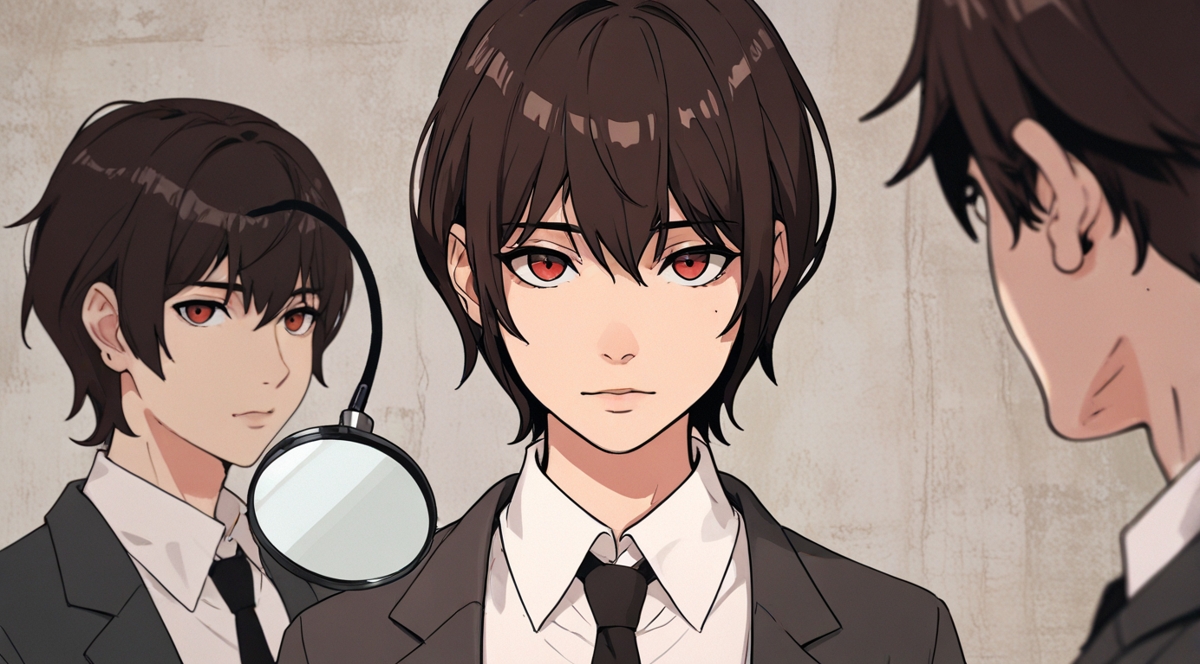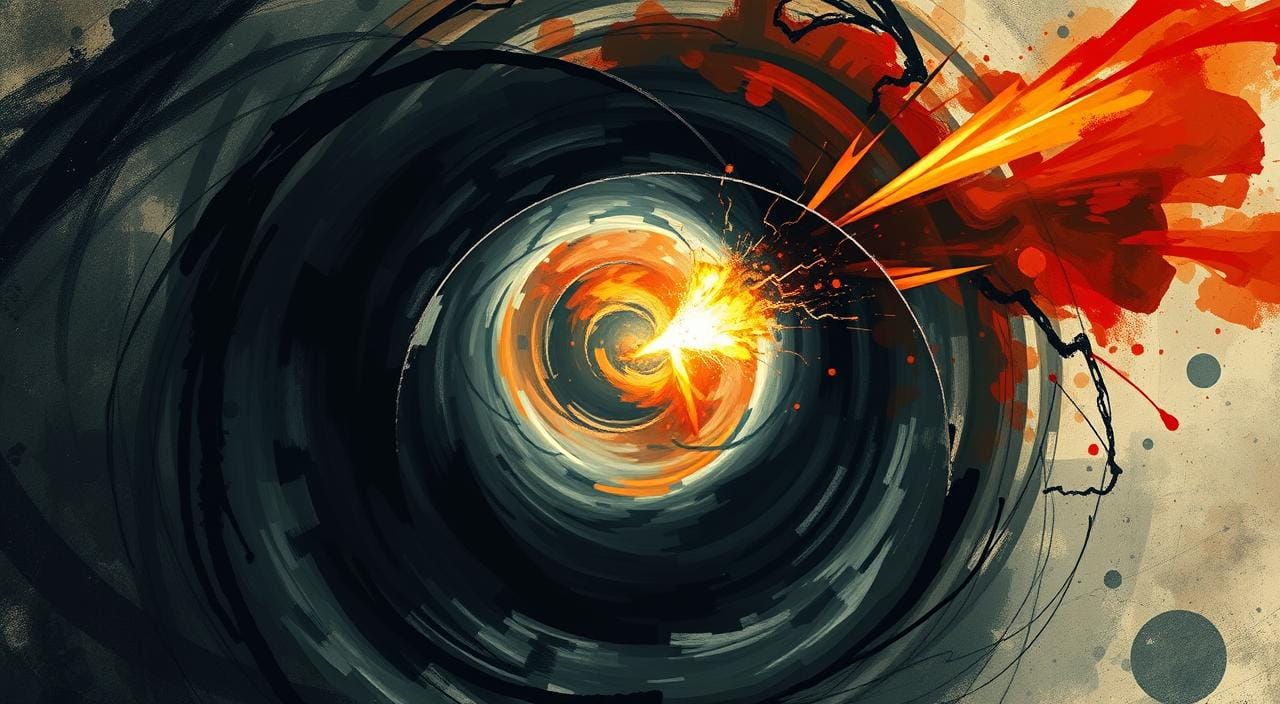Human relationships can be complex, and sometimes we meet people who control and manipulate us. These are the covert narcissists, experts at playing emotional games. They make us doubt our sanity and feel powerless. Narcissistic projection is a key tactic they use to blame others and keep their ego intact. Let’s discuss what is Covert Narcissist Projection?
Ever been accused by a covert narcissist of something they themselves do? This is narcissistic projection at work. It’s a psychological trick that can harm our mental health and relationships1.
Covert narcissists often target empathetic people, using fake empathy and victimhood to hide their true motives. Knowing how they project can help us protect ourselves and maintain our self-worth.
Key Takeaways
- Covert narcissists are introverted, defensive, and sensitive to criticism, yet they feel entitled and self-centered2.
- They use passive-aggressive tactics like making fun of others, ignoring them, and refusing to help to show their superiority2.
- Narcissistic projection is a way for them to blame others and keep their ego strong1.
- Those affected by narcissistic projection may doubt themselves, feel confused, and be emotionally manipulated1.
- Knowing how covert narcissists project is key to avoiding emotional abuse and manipulation1.
Understanding Covert Narcissism
Covert narcissism is a hidden form of narcissistic personality disorder (NPD)3. It’s different from the obvious, grandiose behavior seen in “classic” narcissism3. People with covert narcissism might seem shy or introverted but still show narcissistic traits3.
What is Covert Narcissism?
Covert narcissism is all about being very sensitive to criticism3. These individuals need lots of validation and admiration3. They might act shy or withdrawn but secretly feel superior3.
Key Traits of Covert Narcissists
Covert narcissists have unique traits that differ from those who are more outgoing3. They often feel depressed, anxious, and empty3. They also hold grudges and feel envious of others3.
They show a self-serving kind of “empathy”3. This means they help others to get approval and admiration3.
It’s important to understand covert narcissism to deal with these individuals4. Knowing the signs and patterns helps us protect ourselves and keep healthy boundaries4.
“Covert narcissists may portray themselves as introverted, shy, or selfless, while seeking admiration and control in relationships.”
| Trait | Description |
|---|---|
| High Sensitivity to Criticism | Covert narcissists are deeply affected by any perceived criticism or disapproval, often reacting with defensiveness or passive-aggression. |
| Passive Aggression | As a way to handle their vulnerability, covert narcissists may engage in subtle, indirect forms of aggression, such as sulking, sarcasm, or undermining others. |
| Grandiose Fantasies | Despite their outward appearance, covert narcissists often engage in grandiose fantasies of success, power, or admiration, compensating for their underlying feelings of inadequacy. |
| Feelings of Inadequacy | At their core, covert narcissists struggle with deep-seated feelings of inadequacy and a fragile sense of self, which they attempt to mask through various defense mechanisms. |
Understanding covert narcissism helps us face the challenges they bring435. It aids in developing better strategies for self-protection and personal growth435.
Covert Narcissist Projection
Covert narcissists often use projection to avoid blame for their flaws6. When criticized or threatened, they may get angry or blame others6.
Projection is common among narcissists, borderlines, and addicts7. They blame others for their own bad thoughts or feelings7.
This way of thinking is seen in less emotionally mature adults7. Covert narcissists think they know more about people than they really do6.
Setting clear boundaries is key when facing a covert narcissist’s projection7. Firm boundaries can stop their tactics and protect your self-esteem7.
“Narcissists are known for their defensiveness and could turn reasonable discussions into arguments.”6
It’s very unlikely a covert narcissist will admit to using projection6. They might keep blaming others and deny their own issues6.
Signs of Covert Narcissistic Projection
Covert narcissists are very sensitive to criticism. They see any slight or failure as a threat to their self-esteem8. Instead of facing criticism, they become defensive or lash out. This is to deflect and project their own insecurities onto others8.
This behavior comes from a belief in their “specialness” and a need to get back at those who wronged them9.
High Sensitivity to Criticism
Covert narcissists can’t handle feedback or admit their flaws8. They react with defensiveness, like withdrawing or blaming others8. This helps them keep up the illusion of being perfect and avoid seeing their own shortcomings9.
Passive Aggression
Covert narcissists often act out in passive-aggressive ways8. They might sabotage others, make jokes at their expense, or ignore them8. This is a way to control and show their own insecurities10.
Knowing the signs of covert narcissistic projection helps protect against their manipulation9.

“Projection is a defense mechanism commonly used by narcissists to protect their fragile self-esteem and avoid self-examination. They may project feelings of shame, inadequacy, worthlessness, and insecurity onto others to maintain their self-image.”9
The Covert Narcissist’s Need for Validation
Covert narcissists seem humble or shy but secretly crave admiration and validation11. They might talk down about their achievements, hoping for compliments to boost their self-esteem11. They also give compliments to others, hoping to get something in return, as they rely on others to feel grandiose11.
They feel inadequate and struggle to keep up their grandiose self-image11. They compare themselves unfavorably to others, feeling jealous when they don’t get attention11. Even small criticism can hurt them deeply, affecting how they see themselves11.
Covert narcissists have traits similar to overt ones, like thinking they’re more important and lacking empathy12. But they show their need for validation in more subtle ways, like being passive-aggressive or playing the victim1112. This makes it hard for others to see and deal with the real issues13.
| Type of Narcissist | Defining Characteristics |
|---|---|
| Grandiose Narcissist | Arrogant, entitled, charming, grandiose, superficial, and vain12. |
| Covert/Vulnerable Narcissist | Lack of empathy, entitlement, hypersensitivity, passive-aggressive behavior, and resentment12. |
| Malignant Narcissist | Exploitative, antagonistic, manipulative, and lacking remorse12. |
It’s key to understand a covert narcissist’s need for validation in relationships111213. Knowing their insecurities and how they try to keep their self-esteem up helps us communicate better and set boundaries111213.

Shy and Withdrawn Behavior
Covert narcissists often seem shy and introverted, which might surprise you. This is different from the usual image of narcissism14. They fear being exposed for their flaws or failures, which would ruin their illusion of being superior14.
To cope with this fear, they retreat into fantasies. In these fantasies, they imagine themselves as incredibly important or special. This is far from their real life14.
These fantasies help them feel better about themselves. They imagine being successful or admired, even if they’re not in real life14. This makes them feel isolated and disconnected from others14.
Covert narcissism is closely tied to being introverted and shy. They fear being exposed, which would destroy their illusion14. By escaping into fantasies, they keep up their image of superiority and avoid facing their true selves14.
The Role of Fantasies
Covert narcissists use grandiose fantasies to deal with their feelings of inadequacy14. These fantasies help them feel important and special. This is a way to protect themselves from seeing their real flaws and failures14.
By hiding in these imaginary worlds, they avoid facing their true selves. They also avoid the risk of being rejected or criticized by others14.

Using fantasies is a key trait of covert narcissism. It helps them keep up a sense of superiority and connection to an idealized self14. This withdrawal into fantasy leads to feeling isolated and disconnected from others14.
“Covert narcissists often portray themselves as introverted, shy, or selfless individuals, but this facade masks a deep-seated need for admiration and a fragile sense of self-worth.”15
Understanding the role of fantasies in covert narcissism is key. It helps us see what drives this complex trait and its effects on relationships and personal growth14. By learning about this coping mechanism, we can better handle the challenges posed by covert narcissists. We can also support those dealing with this condition14.
Emotional Challenges of Covert Narcissists
Covert narcissism is linked to a higher risk of depression and anxiety than other narcissism types16. This is because they fear failure and exposure. They also struggle with their idealized expectations not meeting reality and their need for admiration16.
Depression, Anxiety, and Emptiness
Covert narcissists often feel empty and may even think about suicidal thoughts. The pressure to keep up a perfect image and the reality of their flaws can be overwhelming16. They are very sensitive to criticism and need constant validation, leading to depression and anxiety16.
Despite appearing humble, covert narcissists have a deep sense of entitlement and dislike for others16. This gap between their outer self and inner feelings causes them a lot of distress16.

“The covert narcissist’s constant need for validation and fear of failure can lead to a deep sense of emptiness and even suicidal thoughts. Their inability to reconcile their idealized self-image with reality is a significant source of emotional turmoil.”
Helping covert narcissists requires a detailed plan. It involves self-awareness, building emotional strength, and getting professional help16. Understanding their emotional struggles helps them find ways to cope and focus on their well-being16.
Grudges and Envy
Covert narcissists often hold grudges for a long time17. They feel bad about themselves and get mad when they don’t get the recognition they think they deserve18. They might secretly try to make others look bad or get revenge in a sneaky way18.
They feel jealous of people who have what they want, like success or attention18. To deal with this, they might spread rumors or mess with someone’s work18. This is their way of trying to feel better and in control18.
Covert narcissists seem humble or friendly, but they’re really full of resentment19. They might act helpful or supportive, but they have a secret plan to hurt the people they pretend to help19.
| Trait | Description |
|---|---|
| Holding Grudges | Covert narcissists may wait for an opportunity to make someone look bad or get revenge in a subtle, passive-aggressive way, such as starting a rumor or sabotaging the person’s work. |
| Envy and Resentment | Their bitterness is often rooted in deep feelings of envy towards those who have what the covert narcissist feels they deserve, leading to passive-aggressive behaviors to assuage their jealousy. |
| Fragile Ego | Covert narcissists often present a humble or “nice” facade, masking their underlying resentment and desire for revenge, which can be challenging to recognize. |

It’s important to understand that covert narcissists hold grudges and feel envy17. Knowing this helps us deal with them better in our relationships18. By spotting these traits, we can work on fixing the problems they cause. This leads to better, more real connections18.
Feelings of Inadequacy
Covert narcissists often feel deeply inadequate20. They can’t meet their own high standards, which they also expect from others21. They might use tricks like name-calling and gaslighting to control and hurt those who question their self-image21.
When they face criticism, they feel shame, anger, and powerlessness20. They blame others and act like victims to hide their own flaws21. This can hurt their relationships and lower the self-esteem of those around them20.
Narcissists hold grudges and bring up old issues to control and guilt others20. They might also try to ruin someone’s reputation to look perfect themselves21.
Their need for validation drives their harmful actions21. They seek approval to boost their low self-worth. Knowing this helps in dealing with them and finding better ways to cope21.
Self-Serving ‘Empathy’
Some people with covert narcissism may seem to care about others22. But, their kindness is mainly to get approval and admiration22. If they don’t get the praise they want, they can become bitter and resentful22.
This fake empathy is a way for covert narcissists to control and feel important23. They pretend to be caring to get attention and approval23.
It’s hard to tell if someone is truly empathetic or just pretending22. Narcissists can’t really connect with others because their empathy is not emotional24. This makes it hard for them to have real, caring relationships24.
Knowing the signs of fake empathy helps us avoid being manipulated23. This way, we can build real connections with others23.
“Narcissists are characterized by an inflated self-perception, a profound sense of entitlement, and a continuous quest for admiration and validation.”22
Just because someone seems caring doesn’t mean they are truly concerned about others22. Covert narcissists may pretend to be empathetic to control and get admiration22.
Understanding empathy and narcissism better helps us spot fake empathy23. This way, we can protect ourselves from those who only care about themselves23.
Causes and Roots of Covert Narcissism
The exact reasons for covert narcissism are still being studied. It’s thought to come from a mix of genetics, early life experiences, and certain personality traits25. This type of narcissism shows itself as a fragile self-image, being very sensitive to criticism, and needing constant approval. People with covert narcissism often act shy, withdrawn, and very self-critical25.
Research shows that those with covert narcissism might have had strict parents. They also might remember more childhood trauma and abuse26. This early life can shape how they see themselves and struggle to find their true identity26.
Covert narcissists often find it hard to control their emotions. This makes them more open to stress and depression25. They might also show aggression, have less patience with stress, and try to make others feel their negative feelings26.
Even though we don’t know all the causes of covert narcissism yet, scientists keep looking into it. They want to understand how genetics, environment, and psychology play a part in it25. Research is ongoing to help us understand and deal with this complex issue better.
Navigating Relationships with Covert Narcissists
Dealing with a covert narcissist in a relationship is tough. But, knowing their signs and behaviors helps. Setting boundaries and getting support from friends or therapists can make a big difference27.
The start of a relationship with a covert narcissist can be amazing. They shower you with attention and praise27. But, this happiness doesn’t last. They often start to belittle you, making the relationship unstable27. This can really hurt your self-esteem because of all the criticism27.
It’s important to see when they start to devalue you. Setting clear boundaries helps protect you from their emotional games27. Getting support from others or a therapist can help you heal from the abuse27.
Healing from narcissistic abuse takes time and patience. It’s about being kind to yourself and celebrating small victories27. Trusting your feelings and taking care of yourself helps you regain your self-worth and break free28.
| Dealing with Covert Narcissists | Key Strategies |
|---|---|
| Recognizing the Idealization-Devaluation Cycle |
|
| Setting Firm Boundaries |
|
| Seeking Support |
|
Handling relationships with covert narcissists is all about being aware, setting boundaries, and seeking help. By understanding their behavior and taking steps to protect yourself, you can move towards better relationships2728.
Conclusion
Covert narcissist projection is a tricky form of narcissistic behavior. It can be hard to spot. Understanding its key traits helps us deal with these tricky relationships29.
High sensitivity to criticism, passive aggression, and a need for constant validation are signs. These traits help us recognize covert narcissists. Knowing these signs is key to handling these situations29.
It’s vital to focus on our emotional health and set boundaries. This is especially true when facing covert narcissist projection. These individuals often try to control others and confuse them. They might even sway public opinion in their favor30.
By being alert, setting clear boundaries, and looking after ourselves, we can protect against covert narcissist projection. Narcissistic abuse can seriously harm our mental health. In extreme cases, it can even be deadly31.
Keeping our integrity and resisting manipulation is crucial. It helps us navigate these tough relationships and keep our emotional health safe.
FAQ
What is covert narcissism?
What are the key traits of covert narcissists?
How do covert narcissists use projection as a defense mechanism?
What are the signs of covert narcissist projection?
Why do covert narcissists have a strong need for validation?
How does introversion relate to covert narcissism?
What are the emotional challenges associated with covert narcissism?
How do covert narcissists handle grudges and envy?
Why do covert narcissists feel inadequate?
How do covert narcissists display ’empathy’?
What are the potential causes of covert narcissism?
How can we navigate relationships with covert narcissists?
Source Links
- Narcissistic Projection: When They Accuse You of Their Sins – https://embraceinnerchaos.com/mental-health/narcissistic-projection-when-they-accuse-you-of-their-sins/
- What is a covert narcissist? – https://recovered.org/mental-health/narcissistic-personality-disorder/covert-narcissism
- Understanding Covert Narcissism – https://www.psychologytoday.com/us/blog/making-the-whole-beautiful/202304/understanding-covert-narcissism
- The Untold Story Behind A Narcissist’s Projection – https://www.commonego.com/blog/the-untold-story-behind-a-narcissist-s-projection
- What Is Narcissistic Projection & How to Respond – https://www.simplypsychology.org/narcissistic-projection.html
- 7 Major Projections Narcissists Apply To You – Surviving Narcissism – https://survivingnarcissism.tv/7-major-projections-narcissists-apply-to-you/
- How to Confront Narcissists’ Lethal Weapon: Projection – https://www.psychologytoday.com/us/blog/toxic-relationships/201903/how-confront-narcissists-lethal-weapon-projection
- Projection (The Narcissists’ Weapon that Can Be Used Against Them) – https://medium.com/@OwnYourReality/projection-the-narcissists-weapon-that-can-be-used-against-them-7ebb63848998
- Narcissistic Projection: Unmasking the Art of Blame-Shifting – https://www.linkedin.com/pulse/narcissistic-projection-unmasking-art-blame-shifting-kamini-wood-nsq8e
- 5 Ways Narcissists Use Projection – Reach Out Recovery – https://reachoutrecovery.com/five-ways-narcissists-use-projection/
- Understanding the Covert Narcissist: A Hidden Strain of Narcissism – https://www.linkedin.com/pulse/understanding-covert-narcissist-hidden-strain-darleen-barton-qlcfc
- The Eight Types of Narcissists – https://www.family-institute.org/behavioral-health-resources/eight-types-narcissists
- The Covert Narcissists – Understanding Their Traits And Behaviors – https://www.brainzmagazine.com/post/the-covert-narcissists-understanding-their-traits-and-behaviors
- Covert Narcissist: Signs, Causes, and How to Respond – https://www.healthline.com/health/covert-narcissist
- Covert Narcissism: Understanding and Healing from Its Effects – https://anniewright.com/covert-narcissism-understanding-and-healing-from-its-effects/
- Covert Narcissists: How To Powerfully Cope & Recognize Them – https://www.scienceofpeople.com/covert-narcissist/
- Narcissists: One Size Does Not Fit All — The Counselor’s Coach – https://www.thecounselorscoach.com/practice-business-building-ideas-counselor-blog/narcissists-one-size-does-not-fit-all
- How Do Covert Narcissists Argue? 6 Techniques They Use – https://www.medicinenet.com/how_do_covert_narcissists_argue/article.htm
- 5 tell-Tale Signs of a Clinically Covert Narcissist Husband – https://www.couplestherapyinc.com/the-signs-of-a-covert-narcissist-husband/
- Narcissists and Projection – https://medium.com/@narcfree3/narcissists-and-projection-3873d3e81db3
- 5 Ways Narcissists Project and Attack You – https://psychcentral.com/blog/psychology-self/2017/09/narcissistic-projection
- Unmasking the “Empath” as a Covert Narcissist – https://www.linkedin.com/pulse/unmasking-empath-covert-narcissist-amour-hunyi-q2fuf
- 84 Warning Signs of Fake Empathy in Relationships with Narcissists – Moving Forward with Hope – https://www.movingforwardafterabuse.com/fake-empathy-narcissists/
- Empathy in Narcissistic Personality Disorder: From Clinical and Empirical Perspectives – https://www.ncbi.nlm.nih.gov/pmc/articles/PMC4415495/
- Overt and Covert Narcissism – https://narcissisticbehavior.net/revealing-the-two-faces-of-narcissism-overt-and-covert-narcissism/
- The narcissist’s false reality and how he traps you in it – https://terezashealthblog.wordpress.com/2018/07/05/the-narcissists-false-reality-and-how-he-traps-you-in-it/
- The Covert Narcissist’s Love Rollercoaster: From Pedestal to Pit – https://medium.com/@selfhelpchampion4/the-covert-narcissists-love-rollercoaster-from-pedestal-to-pit-380edc6a43c8
- The Mirror of Deception: Unmasking Narcissistic Projection – https://medium.com/@selfhelpchampion4/the-mirror-of-deception-unmasking-narcissistic-projection-44a4dcdbaa24
- How The Narcissist Projects His/Her Behaviour Onto You – https://blog.melanietoniaevans.com/how-the-narcissist-projects-hisher-behaviour-onto-you/
- The 4 Primary Goals Of A Covert Narcissist – Surviving Narcissism – https://survivingnarcissism.tv/the-4-primary-goals-of-a-covert-narcissist/
- How to Escape a Narcissistic Abuse Cycle – https://www.verywellmind.com/narcissistic-abuse-cycle-stages-impact-and-coping-6363187







